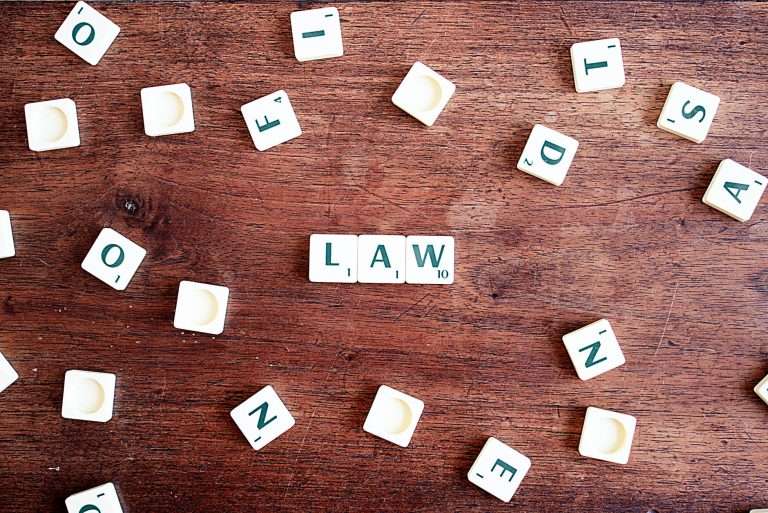This study basically aims to sketch the ideal form of law, meaning how it should be, with respect to the reciprocal relationship between the state and its citizens. With the quotation of HL Mencken at the outset, ‘Equality before the law is probably forever unattainable. It is a noble ideal, but it can never be realized, for what men value in this world is not rights but privileges.’ However, before we jump to the point directly it is required to look upon first what the term ‘ideal’ stands for in this respect. To state exactly what the term ‘ideal’ refers to is a tough job, whether it refers to perfection or something else most compatible.

In accordance with the dictionary meaning it refers to a standard or principles to be aimed at or satisfying one’s conception of what is perfect; or most suitable. Therefore, the ideal form of law is expected to contain all the required standards or principles as a part and parcel of a democratic state to secure the rights and liberty of the citizens as a whole. Whenever it comes to State, the term Citizen adheres to it as always. A citizen is a resident of a city, entitled to enjoy the privileges by living in the city or within the territorial limits of the state. He is a member of the state and is supposed to enjoy social and political rights. However, a democratic state provides those rights to its citizens in part of a reciprocal relationship between them. As its consequences to reach the goal, an ideal form of law is crucial to make this possibly happen.
However, The Ideal Form Of Law In Respect To The Reciprocal Relationship Between The State And Its Citizen May Require The Following Characteristics –
The law is to be simply stated, in a concise form, and clearly meant first, as an ideal form. It is imperative if the purpose of democracy is to be achieved, that those who enforce and interpret the law and those who are subject to the law should readily understand both the text and the intent of
the law.
Again, it is a must that the law be completely successful in achieving its objective. Because every law in a democratic state has a problem-solving purpose, or objective, that serves the best interest of the citizenry as a whole, It seems that the ideal law is supposed to be completely successful in achieving its objective.
Besides, laws often have an effect on and are affected by, other laws. The ideal form of law would be designed such that its interaction with other laws is synergistic in the attainment of its problem-solving objective. Alongside, the law so constituted upon the ideal form of a standard is expected not to produce any sort of detrimental side effects upon the human rights, living standard, or quality of life of the citizen. It must optimally ensure the purpose of democracy.
Moreover, the law so framed by the ideal standard would impose the least possible burdens upon the citizen so that the maximum positive benefit of its enforcement is attained.
So far, the aforesaid characteristics can only be obtained through the application of quality programs that contain quality design, quality assurance, and quality improvement.
Let Us Have A Look Upon Certain Points Which Should Not Be In The Law Framed, Based On An Ideal Standard; Which Are As Follows–
A law that addresses a problem that has not been defined, since a problem cannot be solved if it has not been defined, is not an ideal one that does not address a defined societal problem, cannot have value for the public, and must be repealed.
The law addresses a problem but no longer exists, if it seems that the problem addressed by the law does no longer exist, the law is unnecessary and has lost its ideal appeal.
Further, a law addresses more than one problem, generally, a law is a single solution that applies to a single problem. Laws that address more than one problem never solve all of them simultaneously, whereas resources are wasted when a law continues in effect after the first problem
is solved, but the remaining problems are not.
Furthermore, a Law that has not to state any purpose in particular; A law that has not stated purpose is dangerous because the people who enforce, interpret, and comply with the law are forced to make their own judgment as to the intent of the law and those judgments may be in direct contradiction with the law’s intent.
Another law that violates human rights; a fundamental principle of democracy is that it is obligated to secure and uphold human rights. And laws that violate human rights must be repealed.
Besides, Where the language of the law is vague or complex; vague and complex laws are minded to misinterpretations. They can subvert the public-benefit intention of the law, causing harm to the mass people.
Again, when the burdens of the law are greater than the problem-solving benefit of the law, it is harmful to the public and must be repealed.
Along with this, the burdens of the law are equal to the problem-solving benefit of the law. When the burdens of a law (costs, invasion of privacy, undesirable side effects) are equal to the benefit, the net benefit (usefulness) to the public is zero. Useless laws are unnecessary and must be repealed.
Moreover, if law interferes with other laws; laws are intended to provide a net benefit to the people as a whole. If a law interferes with the performance of another law, it must be repealed.
Read another article: A workable definition of law, Probably!
These are certain points that shouldn’t be in a law framed under an ideal form or standard. Therefore, upon the standards or points mentioned above being realized if a law is to be framed, even though this might not deserve the ideal status but would do the compatible or most suitable one.
The object of any law is to provide justice. The law aims to build up a strong order in society. And this is provided by the function of a democratic state. And the law is a crucial part of the state if the law is constituted on an ideal basis. Law is not static but a dynamic concept. As society changes from time to time, the law must change with the changes in society.
A law constituted on an ideal basis provides uniformity and certainty to the administration of justice. It would be protection against arbitrary, biased, and dishonest decisions. It would be free from too much rigidity, a conservative nature, and less formality and complexity as well. An ideal law is the mirror of justice, and it depends on the goodwill of a democratic state to address such a law. Whereas justice is the hope and confidence of the citizenry as a whole. Last but not least, the discussion is required to come to an end with the statement, “Laws are a dead letter without courts to expound and define their true meaning and operation.’ -Alexander Hamilton.















